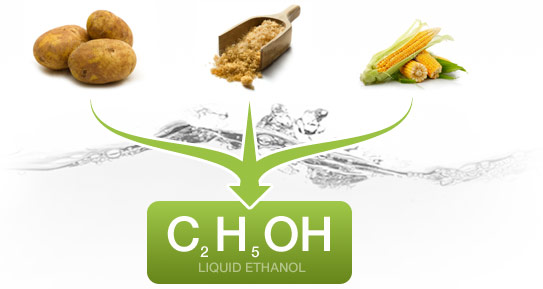NExBTL a useful addition to biodiesel
Using biofuel admixtures in a higher dosage than the 7% currently known is now under discussion, and following a proposal by VDA, Daimler Trucks and Daimler Buses recommend the biofuel NExBTL as an admixture. This is based on hydrated vegetable oils or animal fats, and is already produced industrially. Whether as an admixture or in its pure form, NExBTL is able to supplement or partially replace diesel fuel without problems.
BTL as a fuel of the future for diesel engines
First-generation biofuels such as biodiesel made from rapeseed or sunflowers, or bio-ethanol made from sugar-beet or cereals as a substitute for diesel, only use part of the relevant plants to produce fuel. Accordingly they are sometimes in competition with food production. The same applies to NExBTL as a hydrated vegetable oil. All this will change with the advent of second-generation (BTL) bio-fuels, for which the entire plant is used for the production of fuel. This requires a smaller growing acreage and saves more CO2.
These synthetically based BTL fuels give rise to great hopes for the future. If correctly processed they achieve the same quality as diesel fuel, and have a higher energy density. BTL fuels can be used in unmodified diesel engines, which are easily the most widespread power units in trucks and buses. They are able to use the existing refuelling infrastructure, and can either be added to diesel fuel in any ratio without problems or used in pure form as a direct replacement. Not least, they also exhibit a very favourable CO2 balance and have the potential to meet future exhaust emission limits. In the view of experts, BTL fuels could cover up to 20 percent of the total European fuel requirement.
Daimler, Ulta Leitner, 2015


Recent Comments